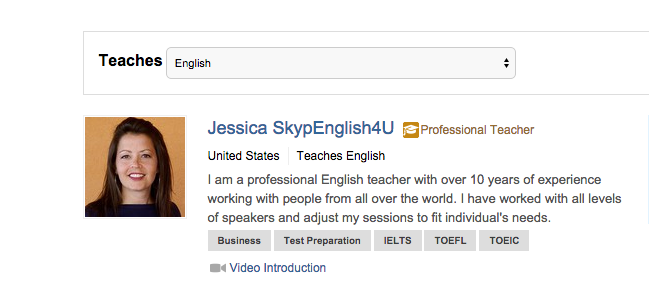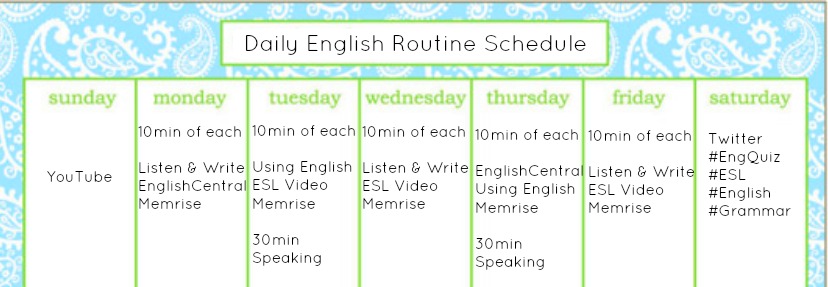italki Instant Tutoring
Do you want to practice your English (or any other language) NOW?
Click here > Sign up to italki and once you are all logged in, you can find native speakers who are available to speak with you immediately, no scheduling in advance necessary.
You’ll see FIND A TEACHER on your top menu of your homepage.

There are different filters for you to select when searching for the right teacher. The language you would like to practice is the first on you need to select and then there are some other optional filters such as where the teacher is originally from, what other languages the teacher speaks, price and tags (such as IELTS, TOEFL or business).
Another filter is Availability. If you want to speak with someone NOW, click on Availability and select ‘Instant Tutoring Available Now’.

You’ll see all of the teachers available at that time listed. You can adjust the filters according to what you are looking for and then select the teacher for instant tutoring. Perhaps you prefer to speak with someone from the UK who also speaks Spanish, you can enter that into the filter, but that particular combination may not be available at that exact time. The instant tutor feature is something that teachers can turn on and off based on their schedule.
The request will be sent to the teacher and they have 10 minutes to accept it.
This feature is GREAT because it allows you to speak to a native speaker at your convenience. So many of us have busy lives and scheduling in advance can be difficult. Instant tutoring gives you the freedom to practice your speaking when YOU have time.
I’ve helped people prepare for job interviews, IELTS, TOEFL and even done some proof reading/editing while on ‘Instant Tutoring’.
Remember, the only way to improve your English is to use it, so go ahead, try it out!











